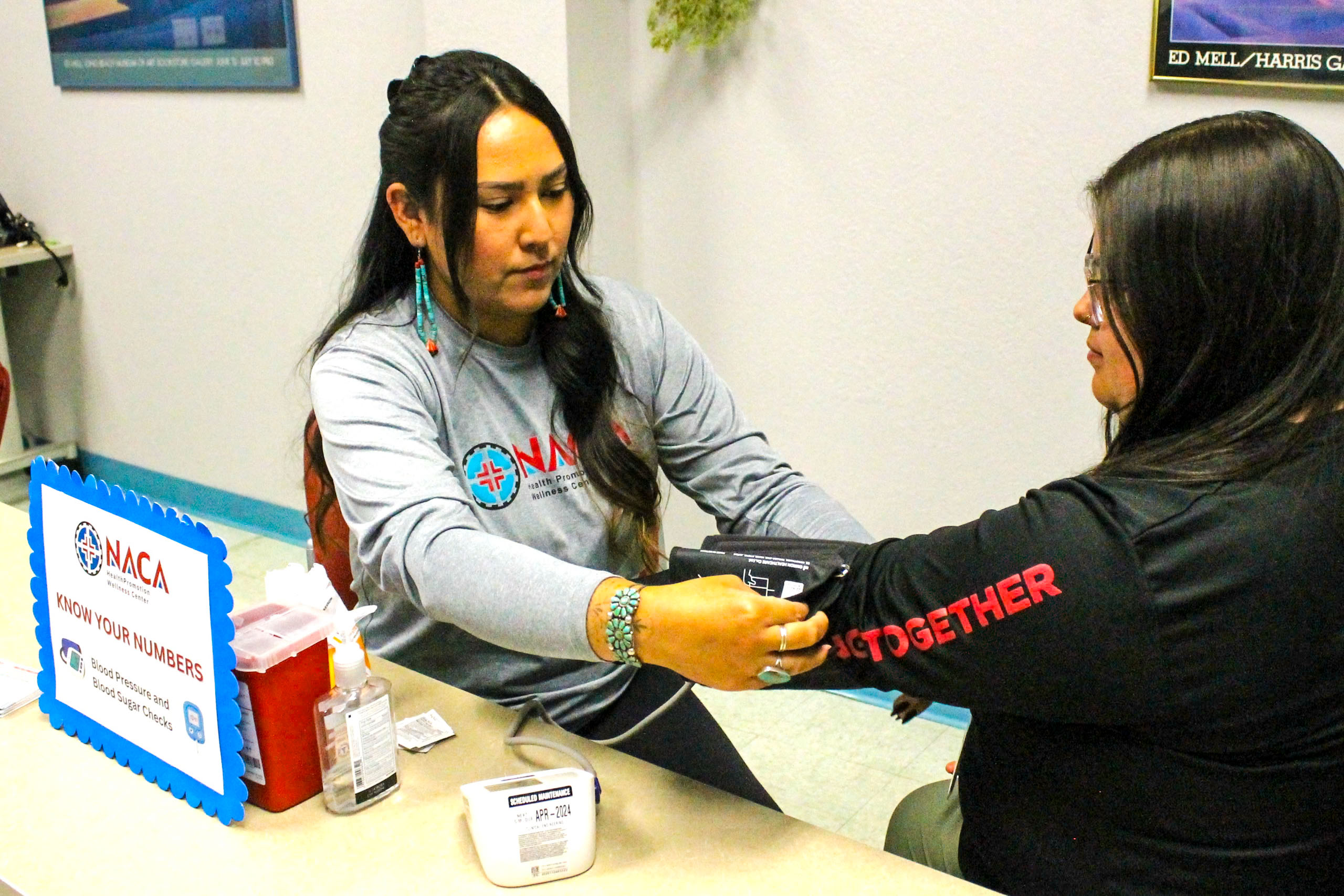
WASHINGTON, D.C. — Federal funding expires at the end of the year for a program that has reduced diabetes among Native Americans. Congress has yet to act, leaving providers and patients worried.
Diabetes is especially prevalent among Native Americans. In Arizona, 27% of Indigenous adults have been diagnosed with diabetes, compared to 10% of the White population, according to 2021 data from the Center for the Future of Arizona.
“It would be very devastating to many tribal communities if the program wasn’t renewed, and it would be a huge loss for public health,” said Caitrin McCarron Shuy, government relations director at the National Indian Health Board, a group that advocates on behalf of tribal governments.
American Indian and Alaska Native communities experienced the first-ever decrease in diabetes from 2013 to 2017, according to research from the Indian Health Service – down 5%, after decades of increases starting in the 1970s.
Public health experts credit the Special Diabetes Program for Indians, launched in 1997 with bipartisan congressional support.
From 2004 to 2024, the program has provided $150 million per year in grants to tribal diabetes programs. Funding remained flat for two decades as inflation eroded the value of the allocation by 40%. The NIHB has pressed Congress to boost it to $250 million per year.
“There have been some major positive outcomes from this program,” said Carmen Hardin, director of the diabetes treatment and prevention division of the Indian Health Service – part of the U.S. Department of Health and Human Services.
But without funding, she added, “ultimately the Native people are the ones that will suffer.”
Aides to House Speaker Mike Johnson, R-Louisiana, did not respond to multiple requests for comment on why the program seems to have stalled.
In Arizona, 27 programs received $32.5 million this year – 22% of the nationwide total.
Most of the Arizona recipients are tribal programs that rely entirely or almost entirely on the federal funding. A handful provide general health care to the community, such as the San Carlos Apache Healthcare Corporation, and have other funding sources, too.
These programs provide treatment and prevention as well as diabetes-related education, physical activity and nutrition information.
#DYK this week was #DiabetesAwarenessWeek? To round the week out, we wanted to highlight the impact #SDPI has had on diabetes in Indian Country. Want to learn more about SDPI? Head to https://t.co/8PXn7hlzCT! #HealthyNativeCommunities #NativesLeadPublicHealth pic.twitter.com/08lC5WmvLp
— NIHB (@NIHB1) June 14, 2024
The last long-term renewal by Congress was in 2004, which lasted until 2017. Since then, Congress has given the program several short-term extensions, the most recent of which kept it running from March through the end of December.
“Our goal is to avoid short-term extensions,” said the chair of the bipartisan House Diabetes Caucus, Rep. Diana DeGette, D-Colorado, in a statement. “They are bad for program managers and the patients they serve.”
Darin Prescott, deputy director of the IHS Division of Diabetes Treatment and Prevention, said staff turnover at rural diabetes programs has been a problem, and uncertain funding doesn’t help.
Winn Davis, congressional relations director at the National Indian Health Board, said a long-term extension creates stability for patients and providers and should be a no-brainer.
By keeping patients healthier, he said, the program saves $88,000 per person and “countless number of lives every year just in folks that don’t progress on from Type 2 to end stage renal disease.”
Hardin, with the IHS, agreed.
“It’s very difficult to run a program when you only have one-year reauthorization,” she said. “Whatever Congress is willing to give us we will work with. However, we are definitely hoping for more funding.”
For more stories from Cronkite News, visit cronkitenews.azpbs.org.Note: This story originally appeared on Cronkite News. It is published via a Creative Commons license. Cronkite News is produced by the Walter Cronkite School of Journalism and Mass Communication at Arizona State University.
VIDEO: H.R.2389, the Quinault Indian Nation Land Transfer Act
VIDEO: H.R.2388, the Lower Elwha Klallam Tribe Project Lands Restoration Act
VIDEO: H.R.2302, the Shingle Springs Band of Miwok Indians Land Transfer Act
Native America Calling: Persistence pays off for tribes working to remove disturbing public monuments
AUDIO: H.R.2916, a bill to ratify the Akwesasne Mohawk Land Claim
AUDIO: H.R.2389, the Quinault Indian Nation Land Transfer Act
AUDIO: H.R.2388, the Lower Elwha Klallam Tribe Project Lands Restoration Act
AUDIO: H.R.2302, the Shingle Springs Band of Miwok Indians Land Transfer Act
Native America Calling: Tribes fight for solutions to dwindling clean water sources
Native America Calling: Mental health experts point to personal connections to maintain winter mental health
Native America Calling: Tribes ponder blood quantum alternative
Defense bill snubs Indian Country in favor of Lumbee federal recognition
NAFOA: 5 Things You Need to Know this Week (December 8, 2025)
Chuck Hoskin: Cherokee Nation benefits from extension of health care credits
More Headlines
